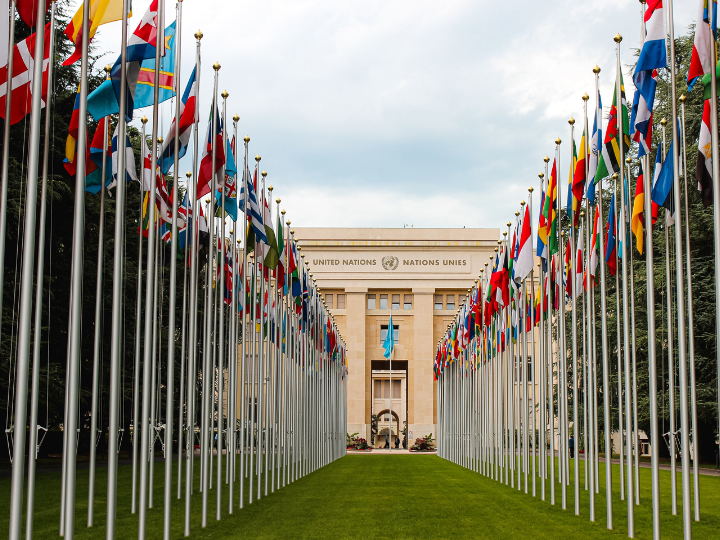The European Commission on Sunday (5 March) hailed a first international treaty to protect the high seas agreed by UN member states as a “historic moment”.
Negotiators from more than 100 countries completed a UN treaty to protect the high seas on Saturday, a long-awaited step that environmental groups say will help reverse marine biodiversity losses and ensure sustainable development.
The legally binding pact to conserve and ensure the sustainable use of ocean biodiversity, under discussion for 15 years, was finally agreed after five rounds of protracted UN-led negotiations that ended in New York on Saturday, a day after the original deadline.
“The ship has reached the shore,” the UN conference president, Rena Lee, said after a marathon final day of talks.
“There will be no reopening or discussions of substance,” she told negotiators.
The agreement will be formally adopted at a later date once it has been vetted by lawyers and translated into the United Nations’ six official languages, she announced.
The treaty is seen as a crucial component in global efforts to bring 30% of the world’s land and sea under protection by the end of the decade, a target known as “30 by 30” agreed in Montreal in December.
UN Secretary-General Antonio Guterres commended the delegates, according to a spokesperson who said the agreement was a “victory for multilateralism and for global efforts to counter the destructive trends facing ocean health, now and for generations to come.”
The European Commission, the executive arm of the European Union, hailed the agreement as a “historic moment”.
“With the agreement on the UN High Seas Treaty, we take a crucial step forward to preserve the marine life and biodiversity that are essential for us and the generations to come,” said Virginijus Sinkevicius, the European commissioner for the environment, oceans and fisheries.
“Today marks the culmination of more than a decade of preparatory work and international negotiations in which the EU played a key role,” he added, saying he was “very proud of our outcome”.
Marine protected areas
The high seas begin at the border of countries’ exclusive economic zones, which extend up to 200 nautical miles (370 kilometers) from coastlines. They thus fall under the jurisdiction of no country.
Even though the high seas comprise more than 60% of the world’s oceans and nearly half the planet’s surface, they have long drawn far less attention than coastal waters and a few iconic species.
Ocean ecosystems create half the oxygen humans breathe and limit global warming by absorbing much of the carbon dioxide emitted by human activities.
But they are threatened by climate change, pollution and overfishing.
Only about one percent of the high seas are currently protected.
When the new treaty comes into force it will allow the creation of marine protected areas in these international waters.
“High seas marine protected areas can play a critical role in building resilience to the impact of climate change,” said Liz Karan of The Pew Charitable Trusts, which called the agreement a “momentous achievement.”
The treaty will also oblige countries to conduct environmental impact assessments of proposed activities on the high seas.
Sharing the spoils
Economic interests were a major sticking point throughout the latest round of negotiations, which began on 20 February, with developing countries calling for a greater share of the spoils from the “blue economy”, including the transfer of technology.
An agreement to share the benefits of “marine genetic resources” used in industries like biotechnology, pharmaceuticals, chemicals or cosmetics also remained an area of contention until the end, dragging out talks.
As in other international forums, notably climate negotiations, the debate ended up being a question of ensuring equity between the poorer global South and richer North, observers noted.
In a move seen as an attempt to build trust between rich and poor countries, the European Union pledged €40 million in New York to facilitate the ratification of the treaty and its early implementation.
Greenpeace says 11 million square km of ocean needs to be put under protection every year until 2030 to meet the target.
“Countries must formally adopt the treaty and ratify it as quickly as possible to bring it into force, and then deliver the fully protected ocean sanctuaries our planet needs,” said Laura Meller, a Greenpeace oceans campaigner who attended the talks. “The clock is still ticking to deliver 30 by 30. We have half a decade left, and we can’t be complacent.”
Sweden, which was involved in the negotiations as the holder of the EU’s rotating presidency, said the agreement was the “most important international environmental deal” since the 2015 Paris Agreement on tackling climate change.
“It is also a victory for the UN and the global system that we have managed to deliver such an important agreement at a very challenging time,” Swedish Foreign Minister Tobias Billstrom said in a written statement.
*first published in: Euractiv.com




 By: N. Peter Kramer
By: N. Peter Kramer
